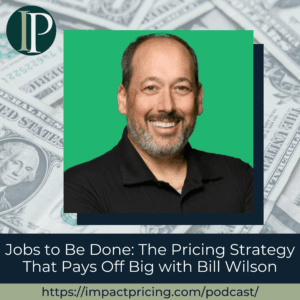
This one is the 10 of Spades from the Impact Pricing card deck.
When we think about what a buyer’s decision process is, think about the two decisions they have to make, ‘will I’ and ‘which one’. And it’s really important for us to understand which of those decisions were pricing for.
The ‘will I’ decision simply asks, the buyers asking the question, should I buy something in this product category? That’s a budgetary decision. They’re really saying, is this problem valuable enough for me to spend money to go solve? When we’re thinking about pricing and someone’s only making that ‘will I’ decision, we need to be thinking about, what’s the value of solving the problem?
Podcast: Play in new window | Download
“When we think about what a buyer’s decision process is, think about the two decisions they have to make, ‘will I’ and ‘which one’.”
– Mark Stiving
The other decision the buyer might be making is the ‘which one’ decision. ‘Which one’ is, okay, I’ve decided I want to solve this problem. Now, am I going to buy your product or a competitor’s product? How am I going to go solve this problem? They’re deciding which one. And here, the pricing decision you have to make is what’s the price of your product relative to the price of the competitive products. Relative to the price of the alternatives. And of course you must take into account the value of your advantages compared to your competitors.
So, as you’re thinking about your pricing decisions, think really hard what’s the decision our buyers are making. Are they deciding ‘will I’? Will I buy something in this product category? Or are they deciding ‘which one’? Which product will I buy?
We hope you enjoyed this example of Pricing Table Topics. What you just heard was done without a script. If you have any questions or feedback, please email me, [email protected].
Now, go make an impact.
Connect with Mark Stiving:
- Email: [email protected]
- LinkedIn: https://www.linkedin.com/in/stiving/















